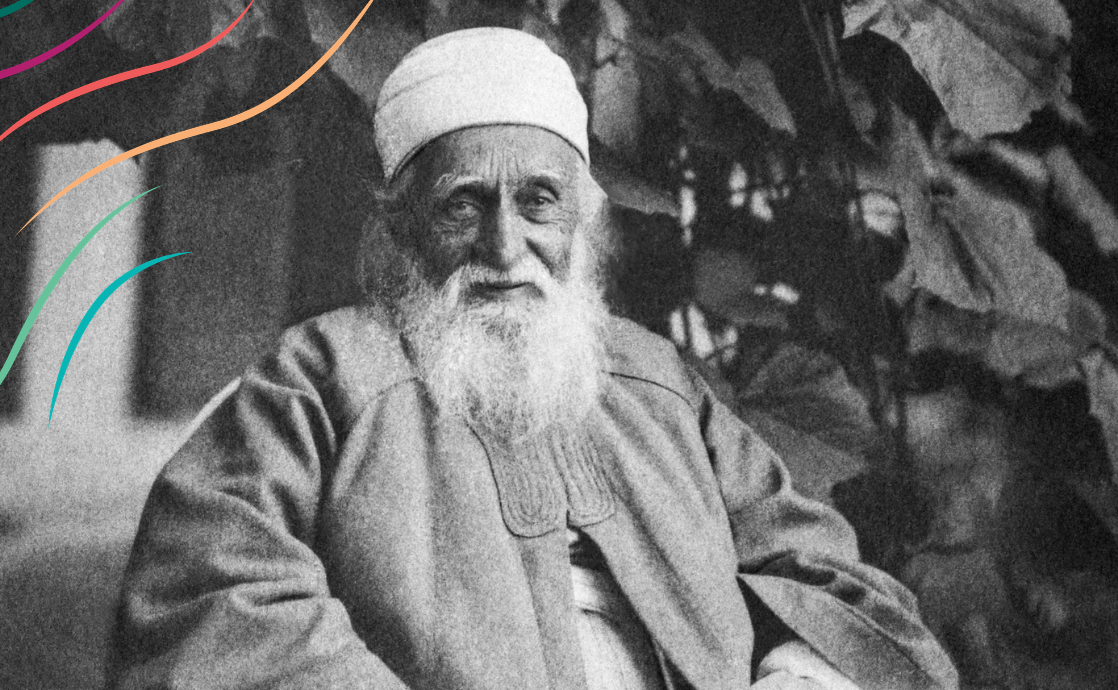In contemplating the profound notion of having a kind and loving father, one might ponder the essence of this metaphor within the framework of Bahá’í teachings. It serves as an enlightening lens through which the divine nature of God can be appreciated, encouraging adherents to embrace principles such as love, unity, and compassion. This exploration endeavors to elucidate the spiritual implications of such a metaphor, illustrating its expansive appeal while fostering a deeper understanding of the Bahá’í faith.
To commence, the metaphor of a kind, loving father invokes imagery of not only nurturing care but also of guidance and support. This paternal figure symbolizes an unconditional love that transcends human frailties, a beacon of hope amidst the tumult of existence. In Bahá’í philosophy, God is oftentimes described using various attributes that reflect the essence of a loving father. Attributes such as mercy, forgiveness, and compassion resonate deeply in the hearts of believers, providing a foundation upon which personal and communal relationships can prosper. Through this metaphor, God embodies an unwavering presence, continually illuminating the path for His creation.
Delving into the practical applications of this metaphor in daily life reveals rich layers of meaning. The acknowledgment of a kind and loving father fosters a sense of security among individuals, granting them the courage to explore their spiritual identities. It imbues followers with the self-assuredness to reach out to their brethren with empathy and kindness. In essence, this divine archetype encourages a reciprocal relationship between the Creator and His creations, urging humanity to reflect His attributes in their interactions with one another.
Furthermore, a poignant aspect of this paternal metaphor lies in the concept of unity. In Bahá’í teachings, unity is not merely an ideal to be aspired to; it is considered a fundamental reality, akin to the very nature of God. The loving father figure symbolizes the boundless love that should ultimately extend beyond familial ties to encompass all of humanity. When believers recognize themselves as the children of a kind and loving father, they are compelled to transcend ethnic, racial, and cultural barriers. The Bahá’í faith promotes the notion that all people, regardless of their differences, are interconnected parts of a larger familial structure, emphasizing the importance of unity in diversity.
The notion of a loving father also invites reflection on the importance of forgiveness within the Bahá’í community. Much like a father who provides a nurturing hand, the teachings elucidate the significance of forgiveness—both in receiving it from God and extending it to others. This dual aspect fosters a healing environment, where grievances and misunderstandings can dissolve in the light of divine compassion. The Bahá’í approach nudges individuals toward reconciliation, reminding them of the transcendent power of love and the necessity of embodying it in their interactions.
In addition, the figurative language associated with God as a kind and loving father resonates deeply with children and adults alike, connoting emotional warmth and safety. This appeals not only to the innate human yearning for parental love but also to the spiritual quest for connection with the divine. The portrayal of God as a nurturing figure illuminates the understanding that divine guidance is not harsh or punitive but rather an invitation to grow, learn, and thrive under benevolent stewardship.
This vision of fatherhood also emphasizes wisdom. A kind father exemplifies the balance of nurturing affection with the provision of wisdom. In Bahá’í teachings, it is posited that God’s guidance, akin to a father’s loving counsel, serves as a compass in the often tumultuous journey of life. As adherents navigate myriad challenges, they are encouraged to seek divine insight and apply it in their daily endeavors. This reinforces the belief that a loving father is not merely a provider of physical necessities but also a source of moral and spiritual direction.
Furthermore, the metaphor cultivates a sense of hope. Much like a father’s love can be a shelter during storms, the concept of a kind and loving father in the Bahá’í tradition symbolizes everlasting support. It imparts the message that, regardless of the tribulations one faces, divine love remains constant and unwavering. This assurance fosters resilience, empowering believers to confront adversities with grace and fortitude. Through this lens, challenges become opportunities for growth, seen through the perspective of a loving father who seeks the best for His children.
Emailing with such themes often leads to a natural inquiry regarding the practical manifestations of these teachings. How may individuals embody the fatherly attributes of God in their communities? The call to adhere to principles such as service, compassion, and justice becomes imperative. Bahá’í teachings encourage a collaborative spirit, imploring believers to serve humanity selflessly. By taking inspiration from the paternal metaphor, individuals can develop an ethos of care and responsibility—one that fosters collective advancement and well-being.
In summation, the metaphor of a kind and loving father within the Bahá’í teachings encapsulates rich and multifaceted implications. It elevates the understanding of God to a nurturing figure whose attributes resonate deeply with the human experience, fostering principles of unity, forgiveness, and wisdom. This intriguing representation not only inspires a deeper connection with the divine but also lights the way for individuals to manifest these qualities in their interactions with the world. Ultimately, as believers embrace the limitless love of their kind, loving father, they are propelled towards creating a more harmonious and compassionate society, reflecting the innate goodness imbued within all creation.
